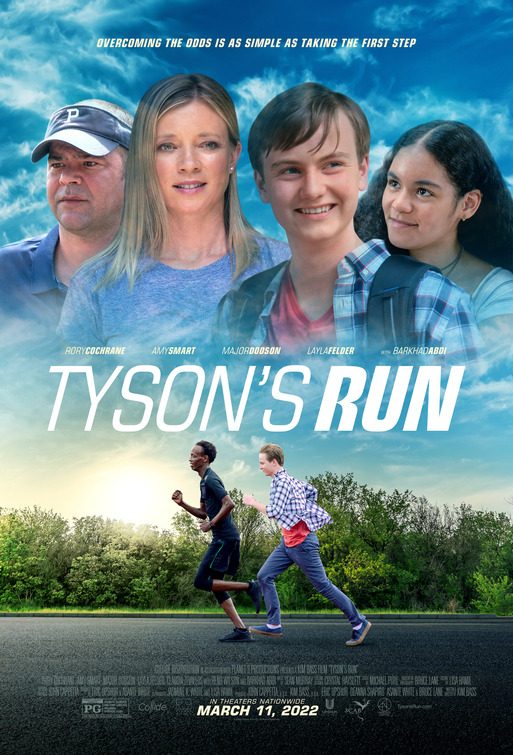
Facebook Took ‘No Action’ Against Drug Cartels, Human Traffickers Who Used Platform to Recruit
By Movieguide® Staff
The Wall Street Journal uncovered evidence that Facebook is complacent while drug cartels and human traffickers use their site to conduct illegal business.
WSJ reporters Justin Scheck, Newley Purnell, and Jeff Horwitz highlighted the details of the documents in a report titled, “Facebook Employees Flag Drug Cartels and Human Traffickers. The Company’s Response Is Weak, Documents Show.”
The report notes that a former police officer investigated Facebook and sent out a memo that outlined some shocking discoveries.
“It began ‘Happy 2021 to everyone!!’ and then proceeded to detail a new set of what he called ‘learnings.’ The biggest one: A Mexican drug cartel was using Facebook to recruit, train and pay hit men,” the article reads.
WSJ claims that despite the information clearly being brought to Facebook’s attention, the company took no significant, effective action.
The report continues:
Employees flagged that human traffickers in the Middle East used the site to lure women into abusive employment situations in which they were treated like slaves or forced to perform sex work. They warned that armed groups in Ethiopia used the site to incite violence against ethnic minorities. They sent alerts to their bosses on organ selling, pornography and government action against political dissent, according to the documents.
Facebook removes some pages, though many more operate openly, according to the documents.
When problems have surfaced publicly, Facebook has said it addressed them by taking down offending posts. But it hasn’t fixed the systems that allowed offenders to repeat the bad behavior. Instead, priority is given to retaining users, helping business partners and at times placating authoritarian governments, whose support Facebook sometimes needs to operate within their borders, the documents show.
Facebook treats harm in developing countries as “simply the cost of doing business” in those places, said Brian Boland, a former Facebook vice president who oversaw partnerships with internet providers in Africa and Asia before resigning at the end of last year. Facebook has focused its safety efforts on wealthier markets with powerful governments and media institutions, he said, even as it has turned to poorer countries for user growth.
“There is very rarely a significant, concerted effort to invest in fixing those areas,” he said.
The primary focus of the internal documents is Facebook employees’ reports of overseas users, which account for 90 percent of users on the social media site.
“Some of the most serious issues flagged by the documents are overseas. Activists have complained for years that Facebook does too little to protect overseas users from trouble it knows occurs on its platform. The documents show that many within Facebook agree,” the WSJ report states.
“In countries at risk for conflict and violence, we have a comprehensive strategy, including relying on global teams with native speakers covering over 50 languages, educational resources, and partnerships with local experts and third-party fact checkers to keep people safe,” Facebook spokesman Andy Stone said recently.
Despite significant discoveries of violence and illegal activity on its site, the documents show that Facebook failed to effectively mitigate groups like the Cartél Jalisco Nueva Generación (which goes by CJNG on Facebook.
“Facebook didn’t fully remove the cartel from its sites. The documents say it took down content tied to the cartel and disrupted the network,” WSJ reports, adding later in the article that Facebook’s lack of action applied to other areas of concern like human trafficking. “Facebook removed the posts but didn’t alert local law enforcement. The investigation found traffickers bribed the local police to look away, according to the report.”
The WSJ report continued to note the example of 28-year-old Patricia Wanja Kimani:
In January, Patricia Wanja Kimani, a 28-year-old tutor and freelance writer in Nairobi, saw a recruitment post on Facebook that promised free airfare and visas—even though facebook has banned employment ads touting free travel and visa expenses, according to the documents.
“Most of the posts were saying cleaners needed in Saudi Arabia,” she said in an interview.
She said she was promised $300 a month to work for a cleaning service in Riyadh. At the Nairobi airport, the recruiter gave her a contract to sign. It said she would receive 10% less pay than she was promised, and that only the employer could terminate the contract. If Ms. Kimani wanted to quit, she would lose her visa and be in Saudi Arabia illegally. Ms. Kimani told the recruiter that she was backing out. The recruiter responded that since Ms. Kimani’s contract had already been sold to an employer, the agency would have to reimburse the employer if she backed out. Ms. Kimani would have to pay the agency to make up for that, she said the recruiter told her.
She didn’t have any money, so she flew to Riyadh. The agency kept her passport. She worked in a home where a woman called her a dog. She slept in a storage room without air conditioning. The house’s locked courtyard and high walls made leaving impossible. She worked from 5 a.m. until dusk cleaning while “completely detached from the rest of the world,” she said.
Ms. Kimani said she got sick and wasn’t allowed treatment, and that she wasn’t paid. After two months, she told the agency she wanted to return to Kenya. They said she could pay them $2,000 to buy herself out of the contract. Ms. Kimani didn’t have the money, and she posted about her plight on Facebook. She named the employment agency, which pulled her from the job and left Ms. Kimani at a deportation center.
She said there were other Kenyan women there and that one had marks from chains on her wrists and ankles. Eventually, her Facebook posts were forwarded to an official at the International Organization for Migration, a U.N. body, which helped negotiate her release and return to Kenya in July.
Ms. Kimani said Facebook helped her get into and out of the mess. She said she has been warning other people about the risks of getting trafficked, and she would like to see Facebook work harder. “I think something should be done about that so that nobody justgoes in blindly,” she said.
Read Also: Facebook Disregards Platform Standards for High-Profile Users
Questions or comments? Please write to us here.


 - Content:
- Content: 

